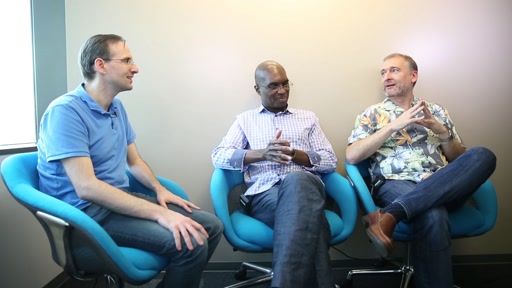C++ Weekly Episode 39: C++17’s Deduction Guides—Jason Turner
Episode 39 of C++ Weekly.
C++17's Deduction Guides
by Jason Turner
About the show:
C++17's automatic class template deduction feature brings with it a new sub-feature called "deduction guides" which are used to help the compiler with class template type deduction. Jason gives examples of what they are and how they are used in this episode.

 The new GoingNative is out!
The new GoingNative is out! The new GoingNative is out!
The new GoingNative is out! The new GoingNative is out!
The new GoingNative is out!